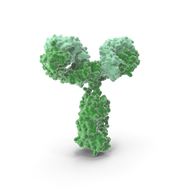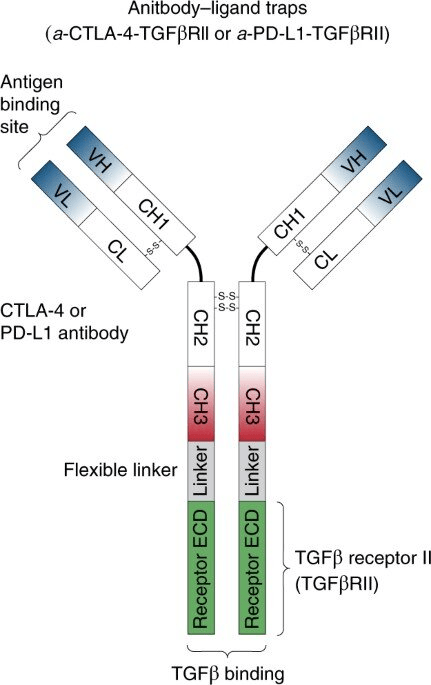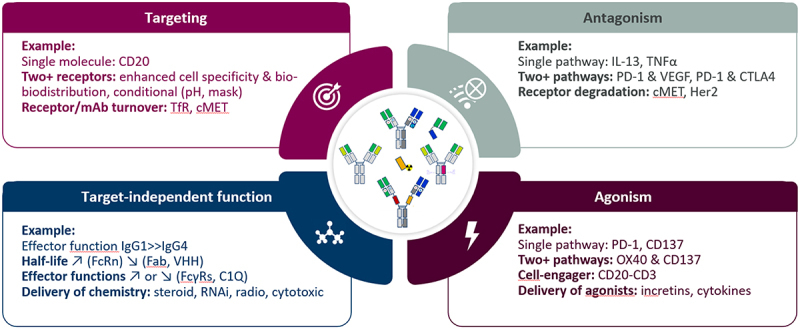Smart Antibodies: The Next Generation of Living Therapeutics
Posted by Lieven Gevaert on 21st Jul 2025
What Are Smart Antibodies?
Smart antibodies go beyond traditional binding they’re designed to act, adapt, and even communicate within the body. Unlike conventional monoclonal antibodies that bind to one target and stop there, smart antibodies can respond to signals, change behavior, and activate or deactivate functions based on real-time biological conditions. Think of them as intelligent agents that can diagnose and treat at the same time.
The Science Behind the Smart
At the core of smart antibodies lies a powerful intersection of synthetic biology, protein engineering, and molecular logic design. These advanced biologics are more than just upgraded versions of monoclonal antibodies they're custom-built to sense, analyze, and act based on their environment, making them dynamic tools rather than passive agents.
Traditional antibodies are Y-shaped proteins naturally produced by the immune system to recognize and neutralize foreign substances. While monoclonal antibodies (mAbs) revolutionized medicine by providing consistent, target-specific therapies, they are still relatively static they bind and block, but they don’t adapt. Smart antibodies, on the other hand, are engineered to function like programmable machines with built-in decision-making capabilities.
To achieve this, scientists are modifying antibodies in several key ways:
-
Modular Design: Smart antibodies are constructed from modular domains swappable protein segments that can be customized for different functions. These may include binding arms for specific antigens, payload carriers for drug delivery, or logic gate modules that only activate in certain conditions.
-
Conditional Activation: A major innovation is the use of molecular "switches" that trigger activity based on environmental cues. These switches respond to variables like pH, temperature, enzyme presence, or biomarker concentration. For example, in the acidic microenvironment of a tumor, the antibody might change shape or shed a protective cap to expose its active site.
-
Logic-Gated Functionality: Inspired by digital circuits, some smart antibodies are being designed with Boolean logic gates—such as AND, OR, or NOT functions. This means the antibody will only activate if two or more specific conditions are met. For instance, an antibody might release a drug only if both Marker A and Marker B are present, increasing targeting precision and minimizing off-target effects.
-
Fusion with Nanotechnology: In some designs, antibodies are being linked to nanoparticles, biosensors, or carrier platforms that enhance delivery, imaging, or controlled release. This allows the antibody to carry and deliver multiple therapeutic agents simultaneously or report back on biological status via imaging techniques.
-
Recombinant and AI-Driven Engineering: With the help of machine learning and recombinant antibody libraries, researchers can now simulate and optimize antibody-antigen interactions digitally, drastically speeding up development time and improving affinity, specificity, and stability.
This fusion of biology and computation marks a new era where antibodies behave more like adaptive systems than simple drugs. They can function in real-time, monitor their surroundings, and adjust their activity on the fly opening the door to personalized therapies that are precise, responsive, and intelligent by design.
Smart Antibodies: Biology That Thinks
Smart antibodies are redefining what’s possible in synthetic biology and molecular design. No longer limited to simple binding interactions, these engineered molecules are capable of logical decision-making, conditional activation, and real-time adaptability. They respond to specific biological cues such as changes in pH, presence of enzymes, or co-expression of multiple biomarkers executing precise actions only when all criteria are met.
This logic-based behavior allows smart antibodies to function like biological processors, filtering complex information and acting only when appropriate. Instead of triggering a single static response, they can be programmed to perform different functions depending on context activating, deactivating, or switching roles based on environmental input. This capability introduces a new layer of biological intelligence, bringing us closer to systems that are self-regulating, energy-efficient, and highly specific.
The broader implications are profound. From research to diagnostics to biofabrication, smart antibodies open the door to more integrated and autonomous biological systems. They set a precedent for future molecular tools tools that don’t just participate in biological processes, but understand them, adapt to them, and collaborate with living systems in smarter, more responsive ways.

Programmable Immunity: A Future Vision
What if our immune system could be programmed like software, running on molecular instructions tailored to our individual biology? This is no longer the realm of science fiction. With the rise of smart antibodies, we are moving toward a future where programmable immunity becomes a powerful tool in medicine offering precision control over immune responses, disease targeting, and therapeutic delivery.
Unlike conventional drugs that act broadly and often unpredictably, programmable antibodies are engineered to interpret specific biological signals and act only when needed. By embedding logic-based systems into antibody structures such as molecular "IF-THEN" conditions researchers can create therapies that respond intelligently to combinations of biomarkers. For instance, a smart antibody may only trigger immune activation if it detects both a tumor-associated antigen and inflammatory cytokines. If only one of these markers is present, the antibody remains inactive, avoiding unnecessary immune responses.
This conditional control has massive implications for diseases where overactivation of the immune system can be just as dangerous as underactivation. In cancer therapy, it allows for ultra-precise targeting of malignant cells without harming healthy tissue. In autoimmune diseases like lupus or rheumatoid arthritis, programmable antibodies could suppress inflammation only during active flare-ups, minimizing long-term immune suppression and side effects.
But the vision doesn’t stop there. Scientists are already experimenting with feedback-responsive antibodies engineered to sense their own activity levels and self-regulate. This could mean treatments that automatically reduce dosage once the desired therapeutic effect is achieved, or antibodies that deactivate when inflammation falls below a certain threshold. Essentially, therapies that can “listen” to the body and adjust themselves in real-time.
Another frontier is the integration of biosensing and memory functions. Antibodies may one day store biological data temporarily, acting as live diagnostic tools that gather information about disease progression or therapeutic efficacy directly from within the body without the need for repeated invasive tests.
In this future, the immune system is no longer just a defense mechanism it becomes a programmable platform, capable of being trained, refined, and optimized for each individual. Programmable immunity promises not just better treatments, but smarter, safer, and more adaptive healthcare where drugs act only when needed, in exactly the right way.
Final Thought: Living Therapeutics Are Here
Smart antibodies mark a true shift in intelligent therapeutics that respond to the body in real time. Acting like biological software, they have the potential to sense, decide, and adapt at the molecular level. As this technology matures, we move closer to therapies that are not just effective, but self-aware, personalized, and responsive ushering in a new era of truly living medicine.



